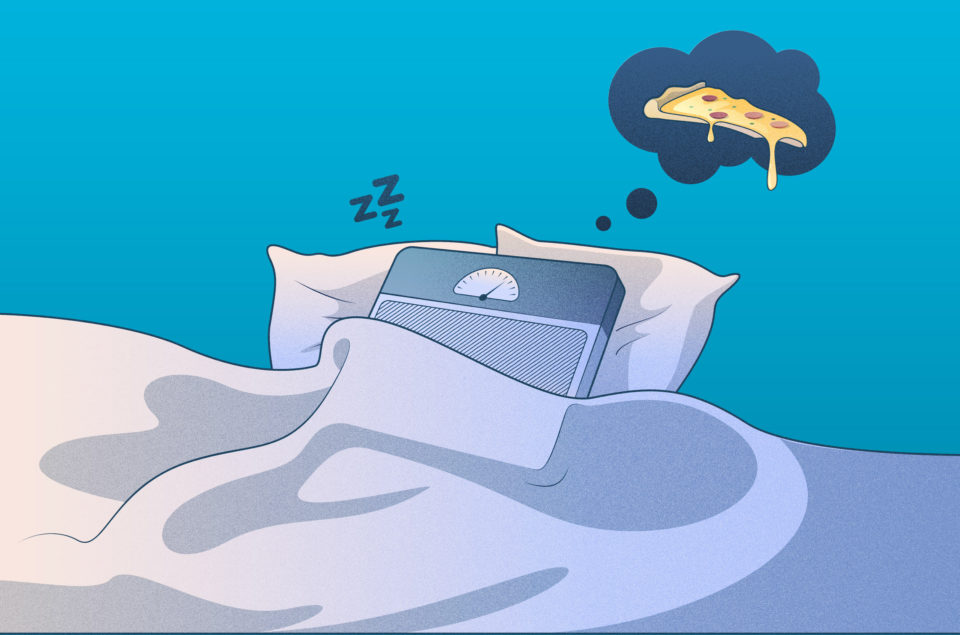For many couples, as much as they love and want to spend time with each other – sharing a bedroom can still feel challenging and an exhausting act to balance. Your partner may simply be the cause behind you not getting optimal sleep at nighttime, which in the long-run can lead to sleep deprivation, mood swings and a range of health conditions.
Having that bedroom conversation is difficult for many as it carries a certain stigma and is intrinsically linked with preconceived social norms that as a couple you should be sharing a bed and bedroom. However, fact remains that many couples dealing with different sleep schedules (biological or socially imposed) can find it burdensome to share their sleep space and bedroom.
As much as we’d love to conjure this problem away for Valentine’s Day, for those who are still keen to keep sharing a bedroom, we’ll guide you through better habits and routines to adopt.
Different sleep schedules: most common reasons
There can be many factors that contribute to why couples keep to different sleep patterns and sleep schedules. Here we list some of the most common reasons couples find it difficult to sync their sleep schedules.
- Chronotypes – Compatible sleep schedules between a morning lark and a night owl can be difficult to balance as your chronotype (the body’s tendency to sleep or feel more alert and awake at certain times) is genetic and can’t be disregarded or adjusted at a whim. Essentially, if you’re prone to staying up late and waking up late and your partner is the opposite of this, one of you is more likely to suffer from interrupted sleep or sleep deprivation.
- Light vs Heavy Sleeper – Your partner can sleep through sirens going off next door, while the rustling of sheets is enough to stir you awake. For light sleepers, sharing a bedroom with many partners will prove a challenge.
- Occupational Hazard – Shift workers can have extreme sleep schedules where they at times have to turn their day upside down, sleeping during the day and working at night. If you’re a light sleeper or have difficulty falling back asleep if woken up by your partner, you may want to consider a few days in the week, when work is at its most intense, to sleep apart in order to catch up on your sleep.
- Sleep Disorders – A partner with a severe or even mild sleep disorder can wreak havoc on your sleep. For example, in a previous interview with Sleep Cycle users where one of the partner’s had severe obstructive sleep apnea (OSA) and had to sleep with a CPAP machine, they adjusted their sleep schedule to let their partner fall asleep first, so they wouldn’t be disturbed by the heavy breathing through the CPAP machine. On the other hand, if you sleep with a snorer, here you have our main tips and remedies (which includes a similar solution).
How to sleep better with your partner
In many cases, an audit of the bedroom can result in a dramatic improvement. In other cases, the change may need to happen on a deeper level, with more emotional investment from both parties. It is worth reminding ourselves that this is a difficult topic to speak about and the fact that you’re planning a strategy on how to support each other’s sleep should be commended.
- Separate duvets: known as the “Scandinavian method“, using two different duvets bring many benefits, such as better individual temperature regulation and fewer sleep disturbances. So instead of sharing a big one, each partner has their own separate, smaller duvet.
- Letting the light sleeper go first: If you know that your other half has a harder time sleeping or falling asleep due to heavy snoring or similar, consider giving them a head start when going to sleep.
- Pick a few days where you sleep apart: This can be an effective strategy if you don’t fully want to separate your bedrooms, but simply adjust ad-hoc when work schedules demand it.
- Meet in the middle: Most chronotypes are on a spectrum, that is, it’s rare that you’re a night owl in the strictest sense. You can often adapt your times slightly forward or back. Discuss and trial out with your partner where you can meet in the middle and what could work for both of you.
- Don’t keep snoozing: As tempting as it is – don’t keep snoozing your alarm clock. Choose a time and stick to it. Not only does it disturb your partner, but also can make you feel groggier and less rested if you fall asleep again and begin a new Sleep Cycle in a deep sleep stage.
- Exit strategy: Who sleeps closest to the bedroom door? You may be used to sleeping on a particular side of the bed, but changing this can be a small concession to make if it means the partner who gets up most frequently at nighttime or has the earlier wake-up call can make a fast exit.
Sleep Divorce as a last resort
For many a last resort, Sleep Divorce can be an effective method to save your relationship from burning out in the long run. Sleep Divorce is essentially an agreement with your partner to sleep separately, so both can benefit from a restful night’s sleep.
| Pros | Cons |
| More restful sleep | Many may feel intimacy is lost |
| Heightened mood and less stress and anxiety | For busy couples, difficult to find other moments of the day to catch up |
| Improved communication in the relationship – Couple needs are met and understood | It always has to be a mutual agreement |
If you choose to go ahead with Sleep Divorce for dealing with different sleep schedules, keep an open communication policy a priority with your partner. A good night’s sleep will no doubt help with this. If you need yet another reason to make sleep a priority in your relationship, Li Åslund, Sleep Cycle’s resident sleep expert sums it up well:
“A good night’s sleep increases our ability to reason and deal with difficult emotions. It provides the energy and emotional stability we need to function well and by extension, nurturing the relationships we have with others.”
So it may well be worth the pain of separating our bedrooms to protect our sleep and by doing so protecting and preserving our relationship with our partner.
When sharing a bed – don’t forget to have fun!
Sleep Cycle has the world’s largest repository for sleep data, where users can opt to share their data anonymously through sleep surveys in pre-populated options. This is what we found when our users put in ‘sex’ under sleep notes. And although ‘sex’ isn’t a standard, ‘pre-populated’ sleep note option, and hence can’t be widely translated or analyzed with any conclusions drawn. It nevertheless is a heartwarming observation:
Compared to other Fridays in February last year, we found a 27% increase in sex as a Sleep Note on February 14th, Valentine’s Day along with 15 minutes longer sleep and above all a 10% increase in self-reported mood the morning after.
Amidst all the survival strategies on how to cope whilst sharing a bedroom together, don’t forget…nudge, nudge, that it’s also a place for fun!
Go and read more Valentine’s Day content from Sleep Cycle!










